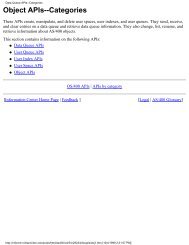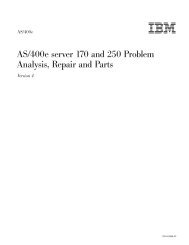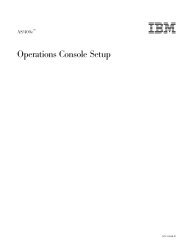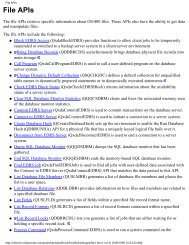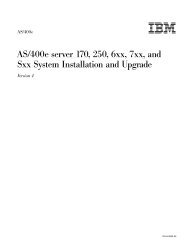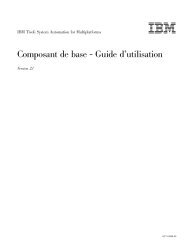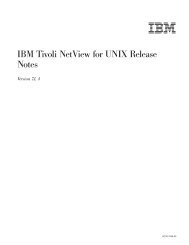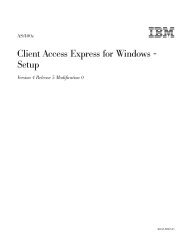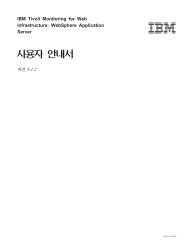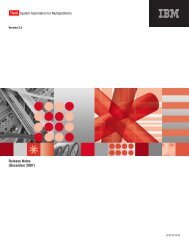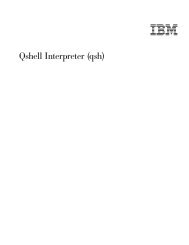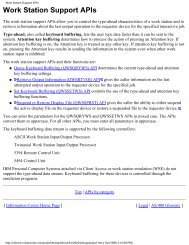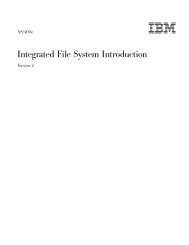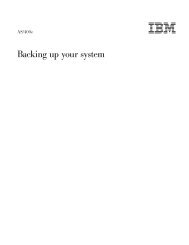You also want an ePaper? Increase the reach of your titles
YUMPU automatically turns print PDFs into web optimized ePapers that Google loves.
48 <strong>File</strong> <strong>Management</strong> V4R5<br />
same call level as the program that contained the TFRCTL command. An<br />
override command in a program that transfers control to another program is not<br />
deleted during the transfer of control.<br />
For an example, see “Effect of TFRCTL on overrides-Scenario” on page 49.<br />
v Several overrides (possibly one per call level, one at the activation group level,<br />
and one at the job level) to a single file are allowed. They are processed<br />
according to the priorities in “Processing priority of overrides” on page 43.<br />
For an example of processing overrides, see “How the system processes<br />
overrides-scenario 1” on page 43.<br />
v You can protect an override from being overridden by overrides at lower call<br />
levels, the activation group level, and the job level; specify SECURE(*YES) on<br />
the override. For an example, see “Securing files against overrides” on page 51.<br />
Effect of exits on overrides: scenario<br />
Exits (ENDPGM, RETURN, or abnormal exits) from a call operation delete<br />
overrides that are scoped to that call level. However, they do not delete overrides<br />
that are issued in that call level that are scoped to the activation group level or the<br />
job level. For example, a RETURN command deletes all overrides scoped to that<br />
call level. Thus, overrides that are scoped to the call level in called programs that<br />
end with a RETURN or ENDPGM command do not apply to the calling program.<br />
This is not true for programs that use the Transfer Control (TFRCTL) command.<br />
In Figure 7, the RETURN command deletes the first override in program B, and<br />
FILE X is opened in program A. However, the RETURN command does not delete<br />
the second override because it is scoped to the job level. FILE B is opened in<br />
program A when program A processes the Open FILE A command.<br />
Program A<br />
.<br />
.<br />
.<br />
CALL PGM(B)<br />
Program B<br />
Override 1 OVRDBF FILE(X) FILE(Y)<br />
Override 2 OVRDBF FILE(A) TOFILE(B) +<br />
OVRSCOPE(*JOB)<br />
.<br />
.<br />
.<br />
RETURN<br />
OPEN FILE X<br />
.<br />
.<br />
.<br />
OPEN FILE A<br />
Figure 7. Example of Effect of Exits on Overrides



